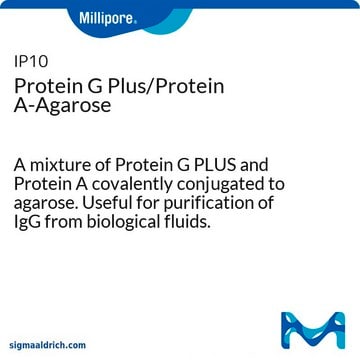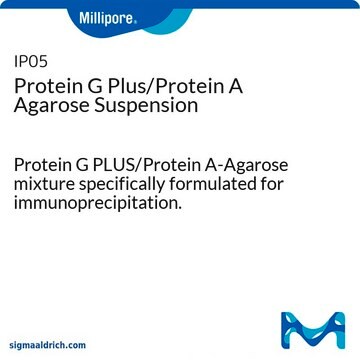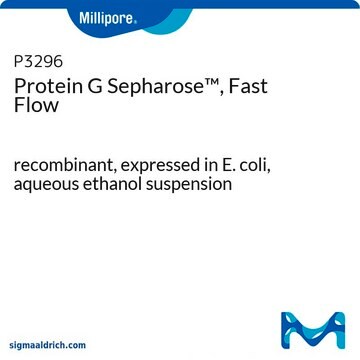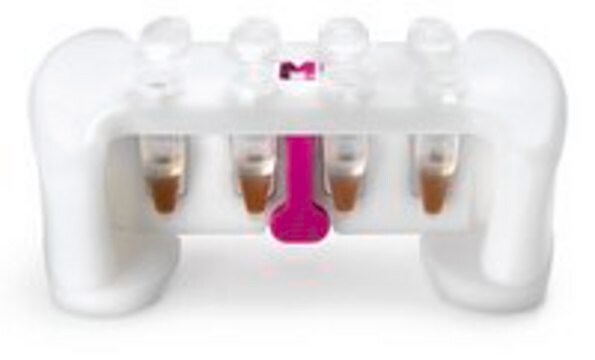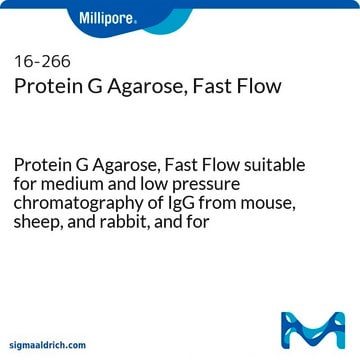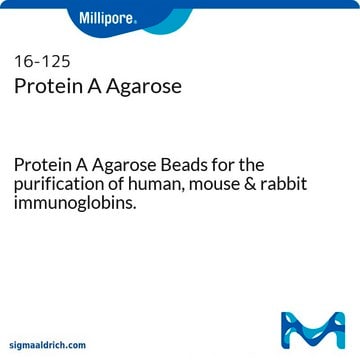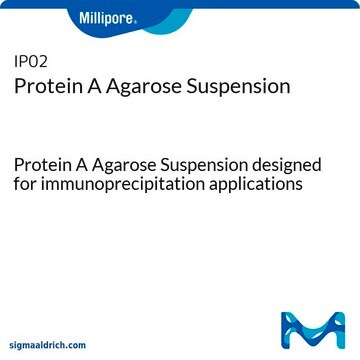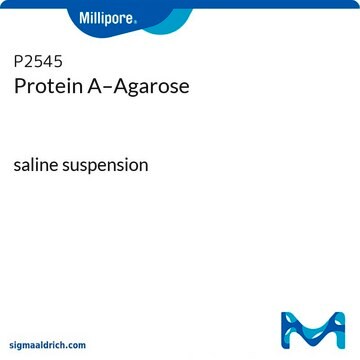IP04
Protein G Plus-Agarose Suspension
Protein G PLUS agarose suspension specifically formulated for immunoprecipitation.
About This Item
Productos recomendados
form
slurry (Liquid)
contains
≤0.1% sodium azide as preservative
manufacturer/tradename
Calbiochem®
storage condition
do not freeze
technique(s)
immunoprecipitation (IP): suitable
suitability
suitable for immunoprecipitation
shipped in
wet ice
storage temp.
2-8°C
General description
Warning
Other Notes
Legal Information
Storage Class
11 - Combustible Solids
wgk_germany
WGK 1
flash_point_f
Not applicable
flash_point_c
Not applicable
Certificados de análisis (COA)
Busque Certificados de análisis (COA) introduciendo el número de lote del producto. Los números de lote se encuentran en la etiqueta del producto después de las palabras «Lot» o «Batch»
¿Ya tiene este producto?
Encuentre la documentación para los productos que ha comprado recientemente en la Biblioteca de documentos.
Los clientes también vieron
Contenido relacionado
We manufacture IP and antibody purification agarose beads that purify immunoglobulins and IgG fractions. Our kits also provide a total antibody purification process
Nuestro equipo de científicos tiene experiencia en todas las áreas de investigación: Ciencias de la vida, Ciencia de los materiales, Síntesis química, Cromatografía, Analítica y muchas otras.
Póngase en contacto con el Servicio técnico
